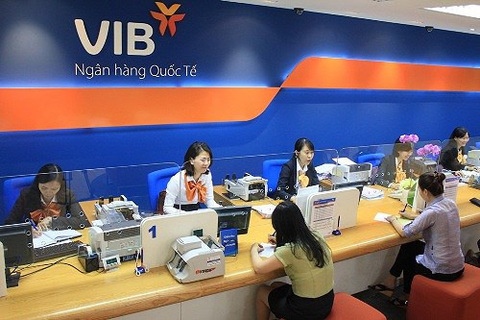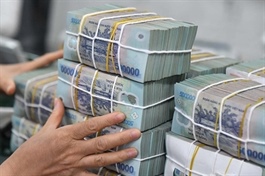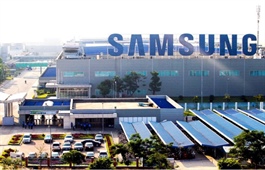Some banks forecast to improve NIM
Some banks forecast to improve NIM
Some banks with a high proportion of personal loans and a low proportion of US dollar-denominated deposits will have better opportunities to improve net interest margin (NIM) than other banks when the economy overcomes the difficult period, analysts forecast.

Customers make transactions at a VIB office. To improve NIM through optimising capital costs, some banks, including VIB, have recently stepped up to attract cheap capital sources from international financial institutions. — Photo vietnambiz.vn |
In a recent report on the banking industry, VNDirect Securities Company said the average NIM ratio of 25 listed banks in the third quarter of 2023 was 3.32 per cent, a decrease of 0.47 per cent over the same period last year. Up to 22 banks had a decrease in NIM in the period.
According to VNDirect, there was a positive signal that the banking industry's capital costs in the third quarter of 2023 decreased by 0.33 percentage points compared to the second quarter, and was the first quarter to see a quarter-on-quarter decrease since the first quarter of 2022. The decline was mainly thanks to low-cost capital raising starting to be effective.
In the fourth quarter of 2023, VNDirect’s analysts expect capital costs will decrease further thanks to low-cost deposits accounting for a higher proportion of banks' capital structure as deposit interest rates decreased significantly by 0.4-1 percentage point in all terms in the third quarter.
However, the analysts said the banking industry's NIM may not improve immediately in the context of current weak credit demand. However, they believe some banks with a high proportion of personal loans and a low proportion of dollar-denominated deposits will have a better chance of improving NIM than other banks.
In fact, to improve NIM through optimising capital costs, some banks have recently stepped up to attract cheap capital sources from international financial institutions.
VIB was the latest bank to recently complete successfully mobilising a medium- and long-term syndicated loan worth US$280 million from 13 leading financial institutions in the region and the world.
Along with VIB, many other banks have mobilised large loans from international financial institutions such as: VPBank borrowed $300 million from the US International Development Finance Corporation (DFC), SeABank mobilised $200 million from the US International Development Finance Corporation (DFC), SHB mobilised $120 million from International Finance Corporation (IFC), and OCB borrowed $55 million from the Development Finance Institution under the Renewable Bank German KFW equipment (DEG).
In addition to promoting the mobilisation of cheap capital from foreign institutions, banks have also implemented measures to stimulate credit demand, especially retail credit through preferential interest rate packages and fee-free service.
In a recently published report on the banking industry, experts from the Banking Research Institute under the Việt Nam Banking Academy said low credit growth requires banks to reduce loan interest rates to stimulate credit demand, but NIM is no longer narrow too much in the last months of this year because deposit interest rates have dropped sharply, helping banks partly reduce input costs.
The decrease in capital raising costs for banks leads to a decrease in lending interest rates, but the decreasing trend of lending interest rates is still slower than deposit interest rates, so NIM can be improved in the near future, the experts forecast.
However, the experts believe in the context that cutting interest rates is still the top priority to boost economic activity and credit demand is currently weak, NIM may not improve immediately. Some banks with high personal loan ratios, low loan to deposit ratio (LDR), and low foreign currency capital ratio to total capital will have many opportunities to improve NIM better than other banks in the fourth quarter of this year.



























